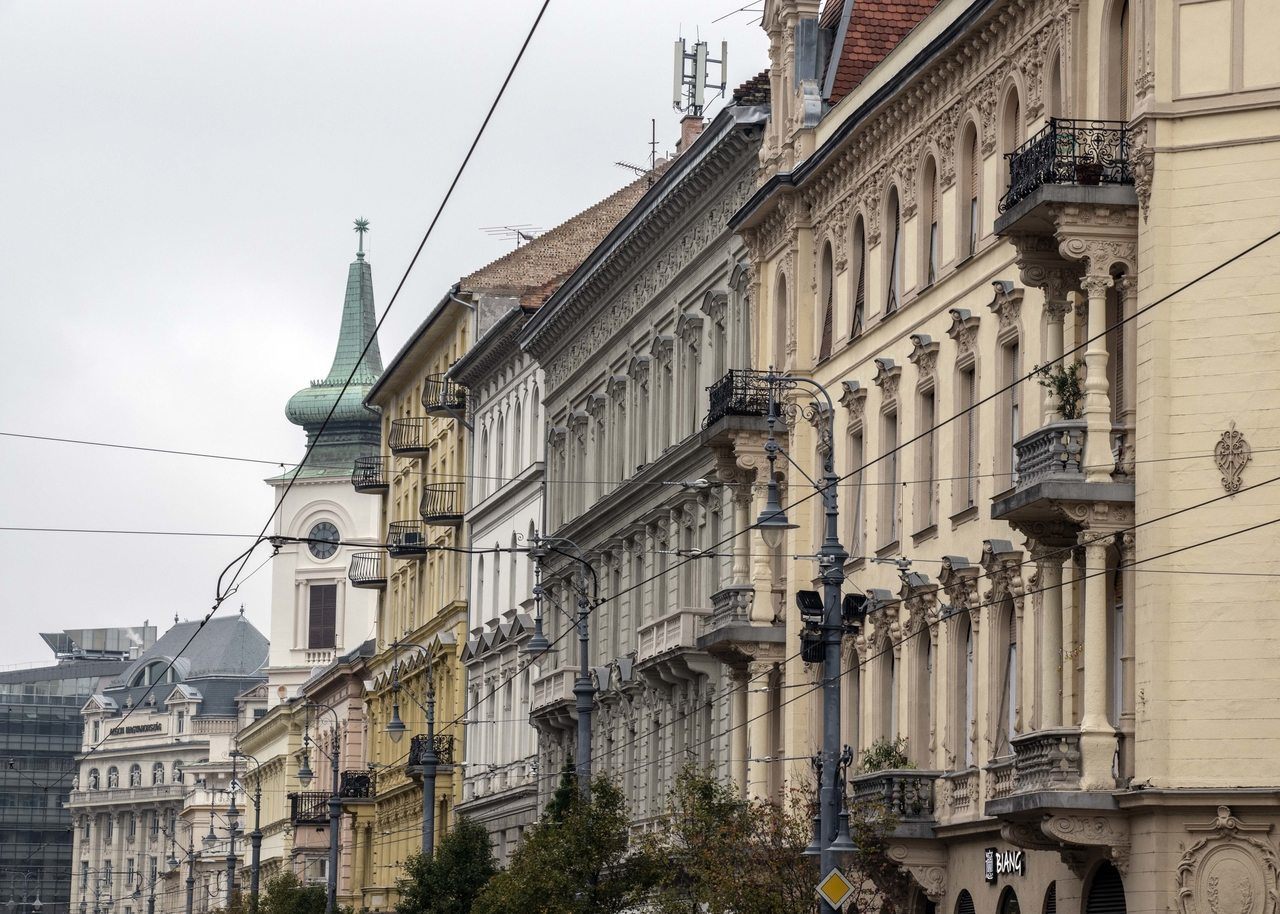Hungarian real estate prices and rents continue to rise in the summer

The Hungarian real estate market has experienced notable price increases compared to the first quarter of the year. Average costs per square metre in Budapest have consistently remained above HUF 1 million (EUR 2,534). Concurrently, rents in the capital have risen by as much as 15 percent compared to the previous year. Data from rental platforms indicates that further increases are anticipated as rental agreements expire during the summer.
Hungarian real estate prices rose in July
According to Infostart, purchasing property in Hungary has become more expensive, with the annual rate of house price appreciation surging from 1.6 percent in January to 6.4 percent in July. Data from ingatlan.com reveals that the most significant price increases were observed in Eastern Hungary, including cities such as Szeged and Debrecen, where house prices have risen by 8.1 to 8.3 percent compared to the previous year. In contrast, Pest County experienced the slowest growth, with prices rising by around 3 percent.
László Balogh, Chief Economic Expert at ingatlan.com, noted that the average Hungarian real estate price per square metre of property in Budapest was HUF 1.02 million (EUR 2,585) in July. He added that while some districts in the capital are relatively affordable, others require significantly higher budgets.
In Districts VIII, XI, XIII, and XIV, Hungarian real estate prices range from HUF 970,000 to 1.2 million (EUR 2,457 – 2,585) per square metre. However, in the most expensive area, District V, the average price per square metre is approximately HUF 1.8 million (EUR 4,560). In comparison, in District XXIII, the cost of one square metre of property is less than HUF 700,000 (EUR 1,773).
Among other major cities, Debrecen is the most expensive, with an average cost of HUF 815,000 (EUR 2,065) per square metre. In Győr and Veszprém, average Hungarian real estate prices per square metre range between HUF 783,000 and 786,000 (EUR 1,984 – 1,991). Conversely, in Kaposvár, Szolnok, Miskolc, and Békéscsaba, average prices are between HUF 441,000 and HUF 479,000 (EUR 1,117 – 1,213). In Salgótarján, prices for one square metre were below HUF 300,000 (EUR 760) in July.
László Balogh pointed out that the price upturn in the Hungarian real estate market has urged those planning to buy a home to enter the market instead of waiting, driving up demand. Indeed, July performed extremely well in terms of the number of people seeking properties on ingatlan.com.

Budapest sees rents surging with the start of the semester
The end of the summer marks the end of many annual rental contracts, often coming with an increase in rent prices when leases are renewed. Meanwhile, demand on the rental market usually increases significantly at this time, as students in higher education flock to the capital come September. As DNH surveyed here, shifts in the Hungarian rental market commenced in many cities across the country after university admission scores were announced earlier in July.
As for Budapest, Index reports that in June, landlords asked for an average of HUF 239,000 (EUR 605) a month, but by July, tenants had to fork out HUF 245,000 (EUR 621). Overall, prices of Budapest flats have been affected by last month’s growth to varying degrees. Rents below HUF 200,000 (EUR 507) have risen the most, with some being up to 15 percent more expensive than last year. In comparison, the monthly cost increase for apartments that lease for HUF 200 to 350,000 (EUR 507 to 887) was less than 10 percent.
However, according to the social renting platform rentingo.com, there has also been a slight change in the amount of money offered by tenants for a flat. After four months of steady decline, the average amount they were willing to pay rose to HUF 219,000 (EUR 555) in July, from HUF 216,000 (EUR 547) the previous month. However, it is clear that this increase is well below the change in rent prices, meaning that, as Index points out, the gap between supply and demand has broadened to 12 percent.
According to László Balogh, the fast pace of house price appreciation and the intense demand for rental apartments in the Hungarian real estate market can drive investors back into the market in the future. This can not only give the sector a short-term boost but, as he highlighted, “The return of investors could also restore the faith of real estate developers in housing, which could further stimulate the market and contribute to economic growth in the longer term.”
Read also:
- Hungarian real estate prices show a record increase in Europe
- Potential Airbnb restrictions threaten Hungary’s tourism sector
Source: Index, Infostart





